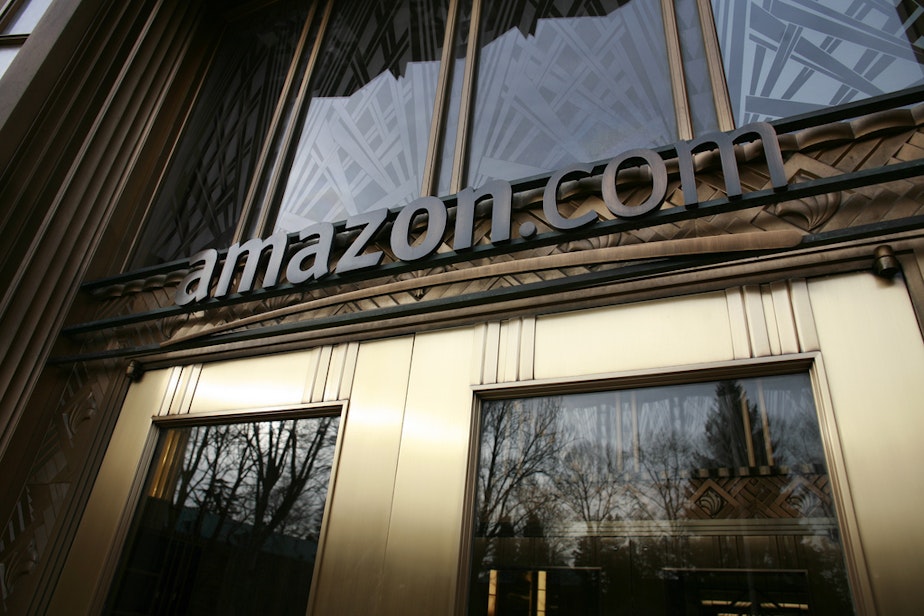Under Pressure: The New York Times Digs Into Life At Amazon

It’s a bruising, even brutal, workplace where an employee caring for a dying parent is seen as “a problem” and people cry at their desks. Or it’s an exhilarating place where even lower-level workers can change the way business gets done in America.
Geekwire co-founder Todd Bishop and the Seattle Times’ Jon Talton told KUOW's Ross Reynolds that a New York Times story over the weekend and Amazon founder Jeff Bezos’ passionate response to it provide an intriguing, complex look inside a company that has remade retail and the city it calls home.
Bishop said Amazon workers he talked to disagreed strongly with the portrayal in the New York Times, with one calling it “ludicrously comical.”
“Employees have bought into the company’s culture,” Bishop said. “You know no matter what you say about how Amazon's workplace operates, it's clear that the workforce they have there for the most part is on board.”
That’s not to say that such anecdotes as one involving the dying parent aren’t real. But in reality, isn’t the work culture of Amazon like that of any number of other hard-charging tech companies?
Sponsored
“There are a lot of parallels to the way that Microsoft operated in the late ‘80s and early ‘90s,” Bishop said. “Employees work very long hours. You know they can get simple question marks from Jeff Bezos and it's cause for alarm.”
He said a story like this could still hurt Amazon with its constituencies – employees, partners and others in the industry.
“Amazon is traditionally very reserved,” Bishop said. “Obviously many stories are written about the company every day. And the fact that Jeff Bezos felt compelled to send a companywide memo like that means that this story struck a nerve.”
So what’s the fallout for Amazon?
“This story has resonated across the tech industry and across the employment landscape generally,” Bishop said. “Tech companies are competing fiercely for talent right now and any negative story can have an impact. And that’s one reason why I think you’ve seen Amazon react the way it has.”
Sponsored
Talton agreed, saying Bezos risked being seen as commoditizing people, culling a certain number every year through stack ranking.
“If Amazon is seen as a hostile place compared to other employers in that field, then it could hurt him in going after talent,” Talton said.
Seattle has a lot riding on Amazon’s success, even as it becomes fashionable to hate Amazon, he said. But he pooh-poohed the notion that that success stemmed solely from the company’s culture.
“Bezos should never confuse algorithms and tough management style with the advantages he got from competing against companies, where he didn’t have to pay taxes, they did. He didn't have bricks and mortar expenses, they did,” Talton said. “They had expectations from Wall Street that he was able to flout. He has a monopoly of the supply chain that Teddy Roosevelt would have gone after him on.”
Still, Bishop sees opportunity for Amazon to reexamine its culture in response to this. He noted that parental leave is a big issue in the tech industry. Amazon doesn’t have paternity leave, and a company spokesman said on television Monday that the company was looking at that.
Sponsored
Bishop called it “really telling” that Bezos asked employees to email him if some of the incidents in the Times’ piece really were going on.
“I think it was indicative in part of the fact that he doesn't have a complete handle on this company,” Bishop said.
“The company has grown to more than 180,000 employees from about 80,000 three years ago. You don't get that kind of growth and still have the founder and CEO have the level of insight that he used to have.”
Photo credit: "Amazon's front door," by Robert Scoble on Flickr (CC BY 2.0)


